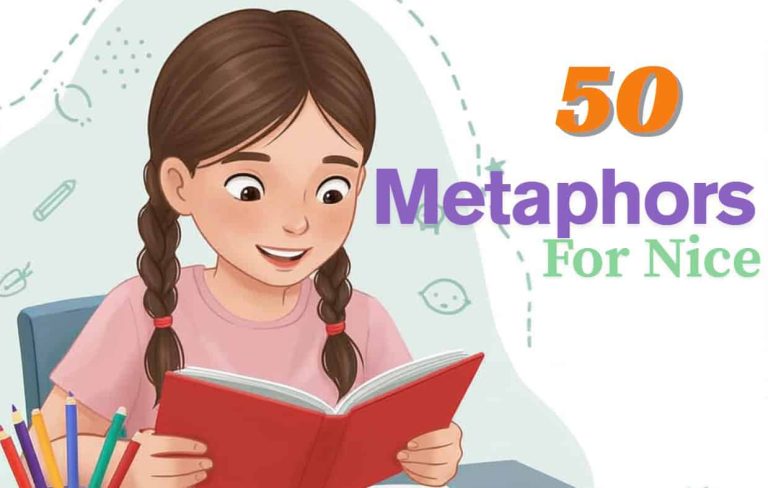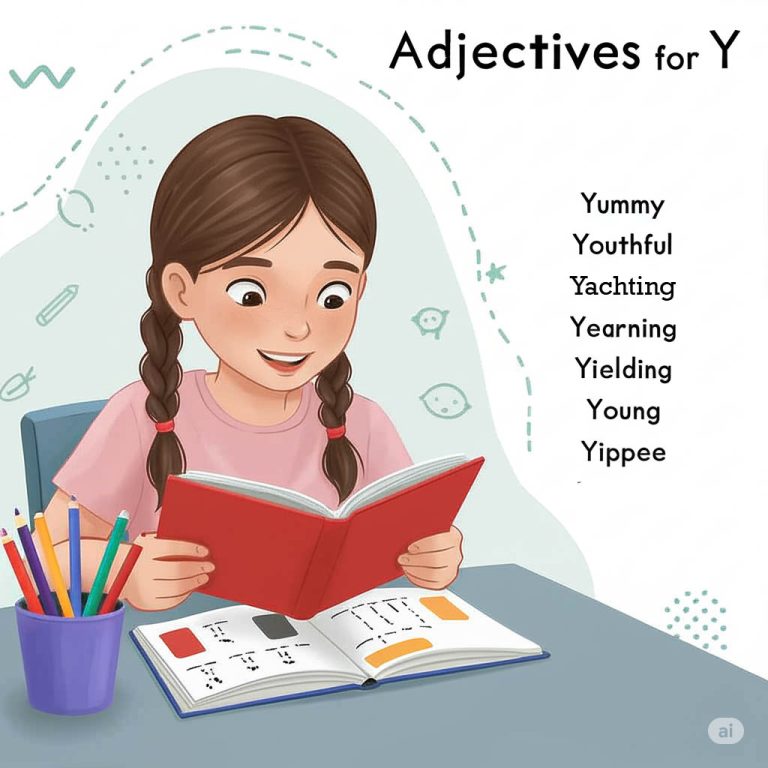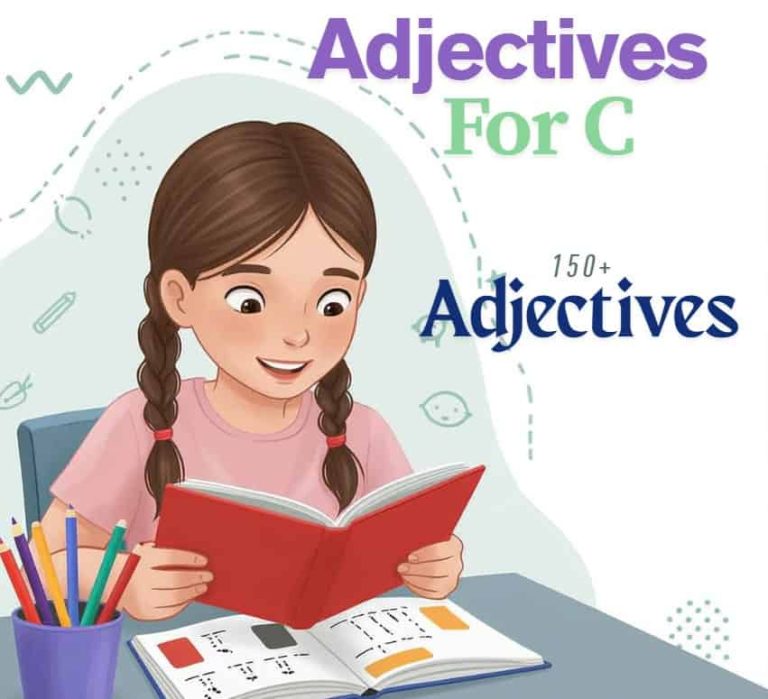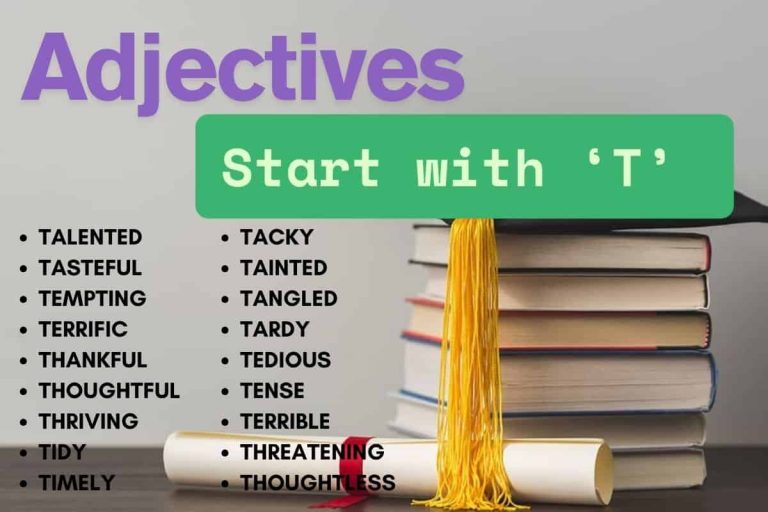50+ Best Adjectives to Describe Parents [With Example Sentences]
Parents are some of the most important people in our lives — our first teachers, most prominent supporters, and often, our lifelong role models. Describing them with the right words can be a powerful way to show appreciation, reflect on their influence, or capture their unique personalities.
That’s where the proper adjectives to describe parents come in. Whether you’re writing a heartfelt letter, a social media tribute, a school assignment, or even a speech, using thoughtful and descriptive adjectives can help paint a vivid picture of the love, strength, and guidance parents provide.
Choosing the right words to describe our parents can be both a joy and a challenge. In this post, we’ll explore a carefully selected list of adjectives for parents, helping you find the perfect word to honor them with meaning and sincerity.
Definition of Adjectives to Describe Parents
An adjective is a word that modifies a noun or pronoun, providing more information about it. Adjectives describe the qualities, characteristics, or state of being of the noun or pronoun they modify.
They answer questions like: What kind? How many? Which one?
Adjectives allow us to paint a detailed portrait of a parent’s personality, behavior, appearance, and overall impact on our lives. They add depth and specificity to our descriptions, making them more meaningful and evocative.
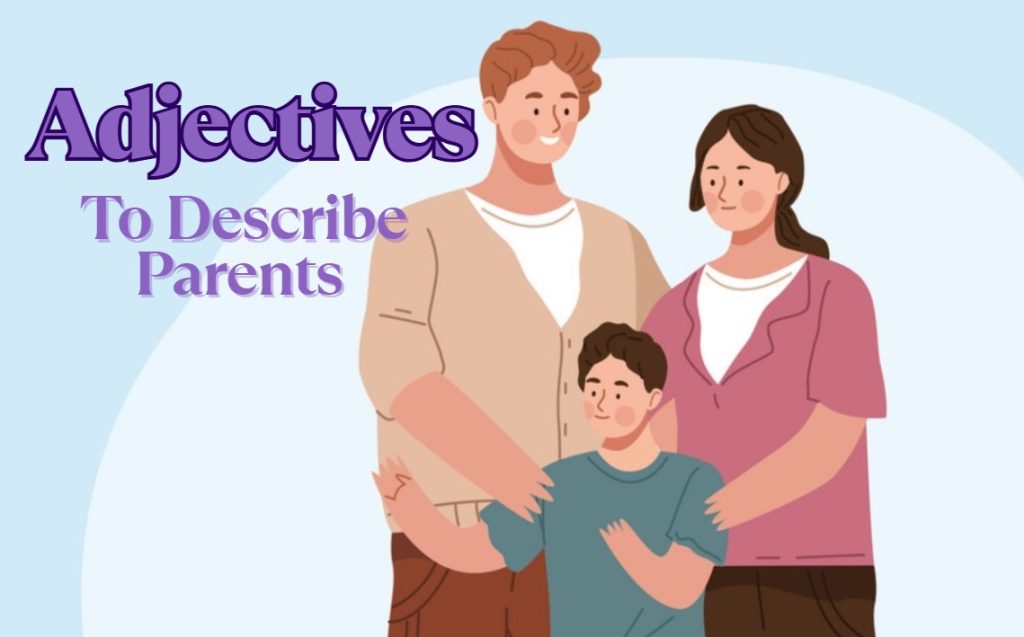
Adjectives can be classified in several ways, including:
- Descriptive Adjectives: These describe the qualities of a noun (e.g., kind mother, strict father).
- Quantitative Adjectives: These indicate quantity (e.g., many children, several rules).
- Demonstrative Adjectives: These specify which noun is being referred to (e.g., this parent, that decision).
- Possessive Adjectives: These show ownership (e.g., my father, her mother).
- Interrogative Adjectives: These are used in questions (e.g., Which parent is stricter?).
Types of Adjectives For Parents with Examples
Here are examples of adjectives that describe parents, organized by the abovementioned categories. Each table provides a context sentence to illustrate the adjective’s usage.
Positive Adjective Examples
These adjectives highlight admirable traits and virtues that make a parent exceptional. They emphasize the positive impact the parent has on their children’s lives.
Examples include: loving, kind, supportive, patient, understanding, compassionate, generous, wise, encouraging, nurturing, forgiving, reliable, responsible, dedicated, selfless, strong, brave, optimistic, cheerful, humorous.
| Adjective | Example Sentence |
|---|---|
| Loving | She is a loving mother who always puts her children first. |
| Kind | My father is a kind man who is always willing to help others. |
| Supportive | My parents were incredibly supportive of my decision to pursue art. |
| Patient | He is a patient father, even when his children are being difficult. |
| Understanding | She’s an understanding mother who listens without judgment. |
| Compassionate | My mother is a deeply compassionate person, always empathizing with others. |
| Generous | They are generous parents who always provide for their children’s needs. |
| Wise | I often seek my father’s advice; he is a very wise man. |
| Encouraging | She was an encouraging parent, always pushing me to reach my full potential. |
| Nurturing | He has a nurturing personality, always caring for those around him. |
| Forgiving | My parents are forgiving and never hold grudges. |
| Reliable | He is a reliable father who always keeps his promises. |
| Responsible | She is a responsible mother who takes her duties seriously. |
| Dedicated | They are dedicated parents, always involved in their children’s lives. |
| Selfless | My mother is incredibly selfless, always putting others before herself. |
| Strong | She is a strong woman who has overcome many challenges. |
| Brave | My father is a brave man who faces adversity with courage. |
| Optimistic | They are optimistic parents who always see the best in people. |
| Cheerful | My mom is a cheerful person, always bringing joy to our family. |
| Humorous | My dad is a humorous man, always making us laugh. |
| Patient | She’s a patient mother, even when dealing with tantrums. |
| Empathetic | He’s an empathetic father, always understanding our feelings. |
| Gracious | My mom is a gracious woman, always polite and kind. |
| Generous | My dad is a generous man, always giving to others. |
| Thoughtful | She’s a thoughtful mother, always considering our needs. |
| Attentive | He’s an attentive father, always listening to what we have to say. |
| Kindhearted | My mom is a kindhearted woman, always caring for others. |
| Tolerant | My dad is a tolerant man, always accepting of others. |
Neutral Adjective Examples
These adjectives describe more objective or factual aspects of a parent’s personality or behavior, without necessarily implying positive or negative connotations. These are simply descriptive terms.
| Adjective | Example Sentence |
|---|---|
| Calm | She is a calm mother who rarely gets upset. |
| Quiet | My father is a quiet man who prefers to listen rather than talk. |
| Reserved | She is a reserved mother who doesn’t easily express her emotions. |
| Practical | My father is a practical man who always focuses on solutions. |
| Organized | She is an organized mother who keeps everything in its place. |
| Efficient | He is an efficient father who manages his time well. |
| Independent | She is an independent mother who values her autonomy. |
| Traditional | My parents have a traditional approach to raising children. |
| Modern | They have a modern outlook on parenting. |
| Intellectual | My father is an intellectual man who enjoys reading and learning. |
| Analytical | She has an analytical mind and always thinks things through carefully. |
| Observant | My mother is very observant and notices even the smallest details. |
| Detail-oriented | He is a detail-oriented father who pays attention to every aspect of his children’s lives. |
| Adaptable | She is an adaptable mother who can handle unexpected situations with ease. |
| Resourceful | My father is a resourceful man who always finds a way to solve problems. |
| Ambitious | She is an ambitious mother who encourages her children to strive for success. |
| Determined | He is a determined father who never gives up on his goals. |
| Disciplined | They are disciplined parents who teach their children the importance of self-control. |
| Focused | She is a focused mother who prioritizes her family’s needs. |
| Serious | My father is a serious man who takes his responsibilities seriously. |
| Authoritative | They have an authoritative parenting style. |
| Principled | My mother is a principled woman, always standing up for what she believes in. |
| Reserved | He’s a reserved father, not one for grand displays of affection. |
| Practical | She’s a practical mother, always thinking about the logistics. |
| Methodical | He’s a methodical father, approaching problems with careful planning. |
| Conventional | My parents have a conventional approach to raising children. |
| Traditional | They have a traditional way of doing things. |
Challenging Adjective Examples
These adjectives describe aspects of a parent’s personality or behavior that might present challenges or difficulties in the parent-child relationship. It’s important to use these adjectives with sensitivity and awareness of context.
This table provides examples of adjectives that describe challenging qualities in parents. Remember to use these with sensitivity.
| Adjective | Example Sentence |
|---|---|
| Strict | She is a strict mother who enforces many rules. |
| Demanding | My father is a demanding man who expects a lot from his children. |
| Critical | She can be very critical, always pointing out flaws. |
| Overprotective | My mother is overprotective and worries about my safety constantly. |
| Anxious | He is an anxious father who is easily stressed. |
| Controlling | She is a controlling mother who tries to micromanage her children’s lives. |
| Stubborn | My father is a stubborn man who rarely changes his mind. |
| Impatient | She is an impatient mother who quickly loses her temper. |
| Distant | He is a distant father who is emotionally unavailable. |
| Aloof | She is an aloof mother who seems uninterested in her children’s lives. |
| Inconsistent | Their parenting style is inconsistent, making it hard to know what to expect. |
| Unpredictable | His behavior is unpredictable, which makes it difficult to interact with him. |
| Judgmental | She is judgmental and quick to criticize others. |
| Perfectionistic | My father is a perfectionistic man who sets impossibly high standards. |
| Possessive | She is a possessive mother who doesn’t want her children to leave home. |
| Rigid | They have a rigid set of rules. |
| Domineering | He is a domineering father who tries to control everyone around him. |
| Authoritarian | They have an authoritarian parenting style. |
| Volatile | Her temper is volatile, making it difficult to communicate with her. |
| Critical | My father is very critical of my choices. |
| Overbearing | She can be quite overbearing, always telling me what to do. |
| Demanding | He’s incredibly demanding, pushing us to our limits. |
| Impatient | She’s an impatient mother, quick to frustration. |
| Unforgiving | He can be unforgiving, holding grudges for a long time. |
| Uncommunicative | She’s uncommunicative, rarely sharing her feelings. |
| Neglectful | Unfortunately, my parents were neglectful during my childhood. |
Parenting Style Adjective Examples
These adjectives focus specifically on the way a parent approaches raising their children, reflecting their values, beliefs, and methods.
Examples include: authoritative, permissive, neglectful, uninvolved, helicopter, free-range, attachment, conscious, democratic, disciplinary, traditional, progressive, hands-on, hands-off, structured, unstructured, responsive, strict, lenient.
| Adjective | Example Sentence |
|---|---|
| Authoritative | They have an authoritative parenting style, balancing rules with warmth and understanding. |
| Permissive | She is a permissive mother who rarely enforces rules. |
| Neglectful | Unfortunately, he was a neglectful father who wasn’t involved in his children’s lives. |
| Uninvolved | They were uninvolved parents, leaving their children to raise themselves. |
| Helicopter | She is a helicopter parent, constantly hovering over her children and trying to solve all their problems. |
| Free-range | They are free-range parents, giving their children a lot of freedom to explore and learn on their own. |
| Attachment | She practices attachment parenting, focusing on building a strong bond with her child. |
| Conscious | They are conscious parents, making deliberate choices about how they raise their children. |
| Democratic | They have a democratic parenting style, involving their children in decision-making. |
| Disciplinary | He is a disciplinary father who believes in strict rules and consequences. |
| Traditional | They have a traditional parenting style, adhering to conventional gender roles. |
| Progressive | They have a progressive parenting style, embracing new ideas and approaches. |
| Hands-on | She is a hands-on mother who is actively involved in her children’s activities. |
| Hands-off | He is a hands-off father who gives his children a lot of space to grow. |
| Structured | They provide a structured environment for their children with clear routines and expectations. |
| Unstructured | They prefer an unstructured environment. |
| Responsive | She is a responsive mother who quickly addresses her children’s needs. |
| Strict | My parents had a strict parenting style growing up. |
| Lenient | They were pretty lenient when it came to rules. |
| Authoritarian | He was an authoritarian parent. |
| Indulgent | She’s an indulgent mother, always giving in to her kids’ demands. |
| Protective | He’s a protective father, always looking out for our well-being. |
| Nurturing | She’s a nurturing mother, providing a loving and supportive environment. |
| Disciplinarian | He’s a disciplinarian, always enforcing rules and consequences. |
| Involved | She’s an involved mother, actively participating in our lives. |
| Absent | He was an absent father, rarely around during our childhood. |
Physical Appearance Adjective Examples
While personality and character are often more important, adjectives describing physical appearance can add another layer of detail to a portrait of a parent. These can range from general descriptions to specific features.
The following table presents adjectives used to describe the physical appearance of parents.
| Adjective | Example Sentence |
|---|---|
| Tall | My father is a tall man with a commanding presence. |
| Short | My mother is a short woman with a warm smile. |
| Slender | She is a slender woman who takes good care of her health. |
| Stocky | My father is a stocky man with a strong build. |
| Handsome | He is a handsome man with a charming personality. |
| Beautiful | She is a beautiful woman with a kind heart. |
| Attractive | They are an attractive couple who always turn heads. |
| Youthful | She has a youthful appearance despite her age. |
| Aged | He has an aged face with wrinkles that tell a story. |
| Wrinkled | Her face is wrinkled with the passage of time. |
| Gray-haired | My father is a gray-haired man with a distinguished look. |
| Dark-haired | She is a dark-haired woman with striking features. |
| Blue-eyed | He is a blue-eyed man with a captivating gaze. |
| Brown-eyed | She is a brown-eyed woman with a gentle demeanor. |
| Well-dressed | They are always well-dressed and presentable. |
| Stylish | She is a stylish woman with a flair for fashion. |
| Elegant | My mother is an elegant woman who carries herself with grace. |
| Casual | They prefer a casual style. |
| Athletic | He maintains an athletic build. |
| Strong | He has a strong physique. |
| Fragile | She has a fragile appearance. |
| Stout | My dad is a stout man. |
| Lanky | My dad is a lanky man. |
| Fit | My mom is a fit woman. |
| Plump | My mom is a plump woman. |
| Stocky | My dad is a stocky man. |
Usage Rules for Adjectives
Using adjectives correctly involves understanding their placement, agreement, and comparison. Here’s a breakdown of the key rules governing adjective usage:
- Placement: As mentioned earlier, adjectives typically precede the noun they modify (attributive) or follow a linking verb (predicative).
- Agreement: In English, adjectives do not change form to agree with the noun they modify in number or gender (unlike some other languages).
- Order of Adjectives: When using multiple adjectives, follow the general order of opinion, size, age, shape, color, origin, material, and purpose.
- Comparative and Superlative Forms: Use comparative adjectives (e.g., kinder, more patient) to compare two things and superlative adjectives (e.g., kindest, most patient) to compare three or more things.
- Compound Adjectives: These are formed by combining two or more words, often with a hyphen (e.g., well-behaved child, easy-going parent).
Common Mistakes with Adjectives
Learners often make mistakes with adjective usage. Recognizing these common errors can help improve accuracy.
| Incorrect | Correct | Explanation |
|---|---|---|
| She is a mother kind. | She is a kind mother. | Adjectives usually come before the noun in English. |
| He is more kinder than his brother. | He is kinder than his brother. | Do not use “more” with adjectives that already have the “-er” ending. |
| She is the most kindest person I know. | She is the kindest person I know. | Do not use “most” with adjectives that already have the “-est” ending. |
| My father is very strictly. | My father is very strict. | Use an adjective (strict) instead of an adverb (strictly) to describe the father. |
| A responsible and caring parent she is. | She is a responsible and caring parent. | Maintain standard subject-verb-object order. |
| He is a tallest man. | He is the tallest man. | Superlatives require a definite article. |
Practice Exercises
Test your understanding of adjectives with these exercises.
Exercise 1: Fill in the blanks with an appropriate adjective from the list below.
(loving, strict, patient, supportive, demanding, kind, humorous, wise, responsible, creative)
- My mother is a very ________ woman; she always knows the right thing to say.
- He is a ________ father who always makes us laugh.
- She is a ________ mother who always puts her children first.
- My father is a ________ man; he expects a lot from us.
- They are very ________ parents, always encouraging us to pursue our dreams.
- She is a ________ teacher, always coming up with new and innovative ways to teach.
- My father is a ________ man; He always takes his duties seriously.
- She is a ________ mother, even when things get tough.
- My father can be ________ at times, but it’s because he cares about us.
- My parents are very ________ to others.
Answer Key:
- wise
- humorous
- loving
- demanding
- supportive
- creative
- responsible
- patient
- strict
- kind
Exercise 2: Rewrite the following sentences, adding adjectives to make them more descriptive.
- The mother smiled.
- The father told a story.
- The parents gave advice.
- The child hugged their parent.
- The family went on vacation.
- The food that the mother cooked smelled good.
- The father was proud
- The mother was happy
- The parents went to work.
- The child called out to their parent.
Example Answers (other answers will be valid too):
- The loving mother smiled warmly.
- The father told a funny story.
- The parents gave wise advice.
- The child hugged their parent tightly.
- The family went on a summer vacation.
- The food that the mother cooked smelled delicious.
- The father was very proud.
- The mother was extremely happy.
- The parents went to demanding work.
- The child called out to their parent excitedly.
Exercise 3: Identify the adjective in each sentence and state whether it is in the attributive or predicative position.
- She is a patient teacher.
- My father is responsible.
- They are loving parents.
- He is strict.
- She is kind and understanding.
- That is a wonderful gift.
- The flowers are beautiful.
- This exam is difficult.
- It was a long day.
- He is a cheerful man.
Answer Key:
- patient (attributive)
- responsible (predicative)
- loving (attributive)
- strict (predicative)
- kind, understanding (predicative)
- wonderful (attributive)
- beautiful (predicative)
- difficult (predicative)
- long (attributive)
- cheerful (attributive)
Frequently Asked Questions
What is the difference between an adjective and an adverb?
Adjectives modify nouns or pronouns, while adverbs modify verbs, adjectives, or other adverbs. Adjectives describe what kind, while adverbs describe how, when, where, or to what extent.
Can I use multiple adjectives to describe a parent?
Yes, you can use multiple adjectives. Just be mindful of the order of adjectives and avoid redundancy.
How can I avoid being biased when describing my parents?
Try to be objective and provide specific examples to support your descriptions. Consider different perspectives and acknowledge both positive and challenging qualities.
Are some adjectives universally positive or negative?
Not necessarily. An adjective’s connotation can depend on cultural context and individual values. For example, “independent” might be seen as positive in some cultures but negative in others if it implies a lack of family connection.
Is it okay to use negative adjectives to describe a parent?
Yes, but do so with sensitivity and awareness of the impact your words may have. Provide context and avoid generalizations. Focus on specific behaviors rather than labeling the person.
Conclusion
Mastering adjectives for parents allows for richer, more meaningful communication. By understanding the nuances, usage rules, and potential pitfalls, you can effectively and sensitively portray the complex individuals who have shaped your life.
Consider your word choices’ context, emotional weight, and cultural implications. With practice and attention to detail, you can paint a vibrant and accurate portrait of the parents in your life.

